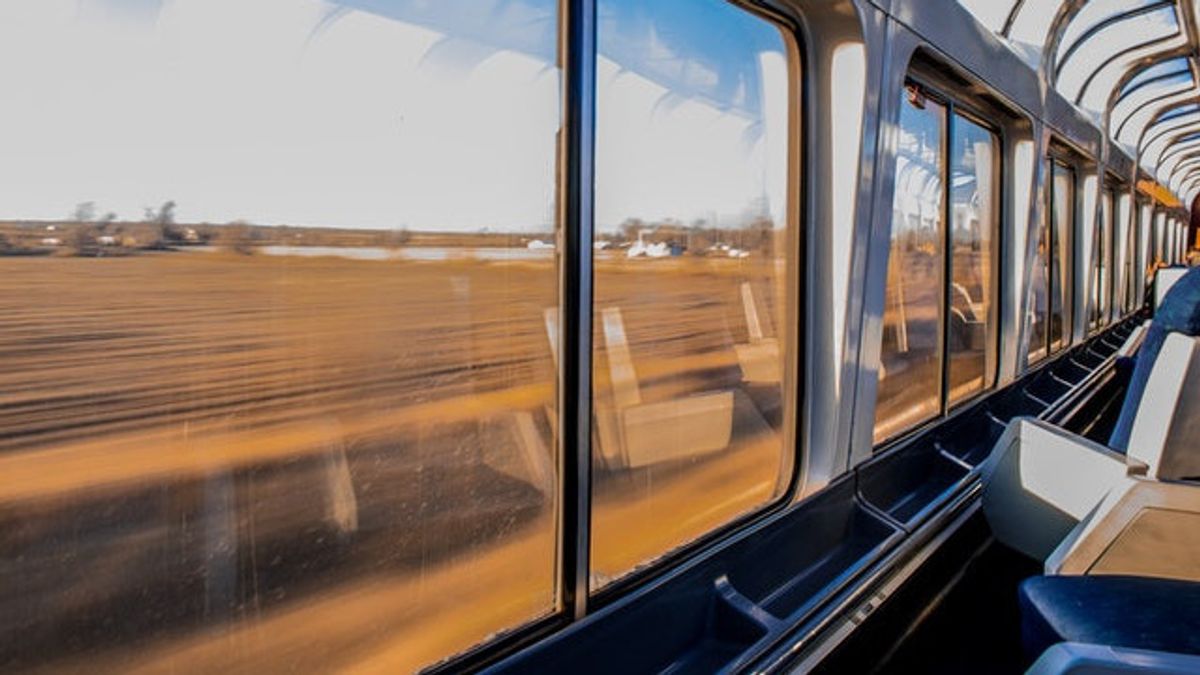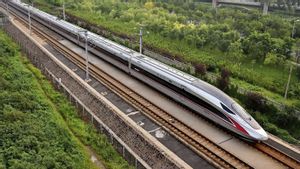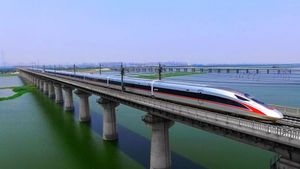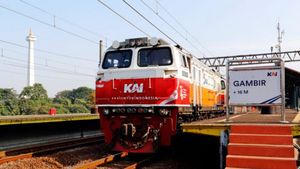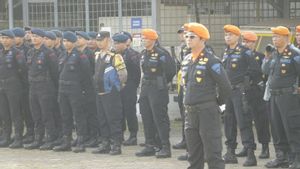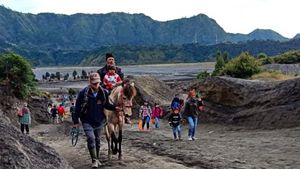JAKARTA - President Joko Widodo (Jokowi) has approved the use of the state budget (APBN) for funding the Jakarta-Bandung high-speed rail project. As is known, the project financing swelled to 7.97 billion or equivalent to Rp26.6 trillion. Initially, this project was calculated to cost 6.07 billion dollars through the cooperation of the Indonesian and Chinese governments.
The use of the APBN for the Jakarta-Bandung High-Speed Rail project is revealed in Presidential Regulation (Perpres) Number 93 of 2021 which was only signed on October 6, 2021. The regulation is an amendment to Presidential Regulation Number 107 of 2015, concerning the Acceleration of the Implementation of Infrastructure and Facilities for the Jakarta-Bandung High-Speed Train.
One of the changes in the regulation is the issue of funding. Where Jokowi initially promised that the construction of the megaproject would not use state money. However, with the issuance of Presidential Decree No. 93/2021, the project can now use the state budget.
"Other funding as referred to in paragraph (1) letter c can be in the form of financing from the State Revenue and Expenditure Budget in the context of maintaining the sustainability of the implementation of National Strategic Projects by taking into account fiscal capacity and sustainability," reads Article 4 paragraph 2 of Presidential Regulation (Perpres) Number 93 Year 2021, quoted Sunday, October 10.
As for Article 4 paragraph 1 letter c reads:
"Funding for the implementation of the assignment as referred to in Article 1 comes from (c) other income in accordance with the provisions of the legislation."
The regulation also states that funding can be done through the issuance of bonds by a consortium of State-Owned Enterprises (BUMN) or joint ventures. Apart from that, it is also possible to borrow from a consortium of SOEs or joint ventures from financial institutions, including foreign or multilateral financial institutions.
SEE ALSO:
Meanwhile, it is further explained in Article 4 paragraph 3 concerning that financing from the APBN is carried out in the form of state capital participation to the leadership of the BUMN consortium and/or guaranteeing the obligations of the leadership of the State-Owned Enterprises consortium.
As is known, the head of the consortium that can receive state budget funds is PT Kereta Api Indonesia (Persero). Because through Presidential Decree 93, Jokowi officially appointed KAI to be the head of the BUMN consortium tasked with working on the Jakarta-Bandung high-speed rail project, replacing PT Wijaya Karya (Persero) Tbk.
While Article 4 paragraph 2 of Presidential Regulation 107 reads, "the implementation of the assignment does not use funds from the APBN and does not get government guarantees.
"In 2015, Jokowi said that the development of trains in Indonesia was really needed. Especially fast trains. However, the government did not want it to burden the budget so that the business-to-business (B to B) approach was the government's choice.
The cost of the Jakarta-Bandung high-speed rail project is swelling
Previously, PT KAI's Finance and Risk Management Director Salusra Wijaya said that the management of PT Kereta Cepat Indonesia China (KCIC) has made cost-cutting efficiency, TPOD, and station management to reduce the project's cost overruns.
"Alhamdulillah, we can press it to 8 billion US dollars. If we reduce the initial budget of 6.07 billion US dollars, the additional cost overrun will be 1.9 billion US dollars, with the composition of 80 percent EPC and 20 percent non-EPC," he said in a hearing. opinion with Commission VI of the DPR, Wednesday, September 1.
Salusra said that the initial budget for the Jakarta-Bandung high-speed rail project was 6.07 billion US dollars. The details are 4.8 billion US dollars for construction costs or engineering procurement construction (EPC), and costs outside the ECP are 1.3 billion US dollars.
"The largest portion of financing is EPC 4.8 billion US dollars, land costs 0.80 billion US dollars, financing costs 0.27 billion US dollars, and HRS management and consultant costs 0.16 billion US dollars," he said.
Furthermore, Salursa said that after being calculated in November 2020, the costs turned out to be stretched to 8.6 billion US dollars. Furthermore, based on a study involving consultants, the cost of the project went up again. One of them is due to land acquisition.
"After a study was carried out with the help of consultants, this project developed after changes in costs and prices and delays due to land acquisition and so on, PSBI's estimates are in the low and high scenario. Low 9.9 billion US dollars, and high 11 billion US dollars," he said.
After knowing the swelling, said Salursa, KCIC management assisted by consultants to make efficiency to reduce financing. He emphasized that in the future KCIC will continue to review and negotiate with the HSRCC consortium of contractors to be able to reduce the estimated cost overrun value.
Salursa said, based on the initial agreement that the additional costs in the running of the project or cost overrun will be charged in best endeavor according to each shareholder.
For your information, the funding for the Jakarta-Bandung high-speed rail project is funded by 75 percent or US$4.55 billion by a loan from the China Development Bank. Meanwhile, 25 percent of project needs are funded from equity.
The English, Chinese, Japanese, Arabic, and French versions are automatically generated by the AI. So there may still be inaccuracies in translating, please always see Indonesian as our main language. (system supported by DigitalSiber.id)
